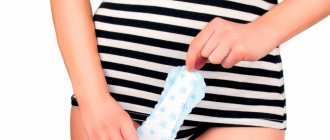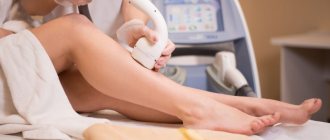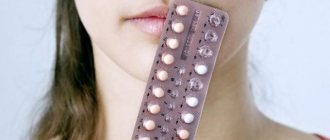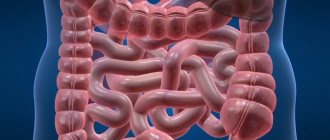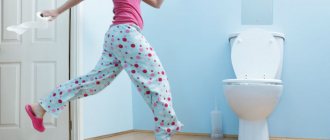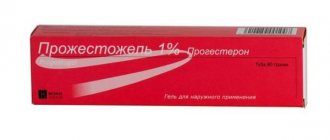Very often, the disease begins during pregnancy, and childbirth only accelerates the process of its development. If a woman did not notice the symptoms of hemorrhoids in time and did not begin to treat them, after childbirth this will require special efforts.
Treatment of hemorrhoids during breastfeeding is considered a very important task. We need to get rid of an unpleasant disease without harming the baby. This can be done by selecting a set of drugs that eliminate the problem without affecting the lactation process.
Hemorrhoids during breastfeeding: causes
The following factors can provoke the appearance or exacerbation of hemorrhoids in a nursing mother:
- lack of physical activity. During gestation, especially in the last months, the expectant mother becomes inactive, which contributes to stagnation of blood in the vessels of the anorectal area. There is a high risk of hemorrhoids in women who are at risk of abortion or premature birth and require bed rest;
- constipation. Intestinal dysfunction may be a consequence of a lack of motor activity, high levels of progesterone in the blood, which inhibits the peristalsis of the intestinal wall. Also, the passage of feces is made difficult due to compression of the rectal canal by the pregnant uterus;
- improper and unbalanced nutrition during pregnancy. Pregnant women do not always watch their diet and often overeat, especially sour, sweet or spicy foods, which leads to constipation or diarrhea, which in turn can cause postpartum hemorrhoids;
- compression of the vessels of the rectum by the enlarged uterus;
- difficult natural childbirth. During a difficult birth or when a woman does not know how to push correctly, a large load is placed on the hemorrhoidal veins, which they cannot cope with. Also, very often, when labor is weak, the midwife causes pushing, stimulating the anus, which also negatively affects the condition of the hemorrhoidal veins.
The listed factors are the main causes of postpartum hemorrhoids.
Stages of the disease
There are four stages of hemorrhoids, each of which is characterized by its own symptoms:
- The first stage - hemorrhoids are inside and do not come out even with straining. The disease practically does not manifest itself, although sometimes pain, itching or blood may appear.
- The second stage - after physical exertion or when straining, the nodes appear on the outside, but then go away on their own. This stage can also pass unnoticed by a person.
- The third stage - the nodes appear outside after a load or when straining; they do not correct themselves, but they can be easily returned to their place with your fingers.
- The fourth stage is external hemorrhoids. The nodes can only be eliminated promptly; the disease is accompanied by discomfort, pain during bowel movements, itching and burning.
If not treated promptly, hemorrhoids can cause destruction of tissues and organs of the pelvic area. If it becomes chronic, then there is a high probability of inflammation spreading to all nearby organs.
An unpleasant consequence of hemorrhoids can be a disruption in the functioning of the sphincter muscles, which will lead to the leakage of feces. Hemorrhoids that begin during pregnancy can significantly complicate its course and the birth process itself. In addition, it can cause the development of certain diseases (paraproctitis, thrombosis, fissures, etc.).

Symptoms of hemorrhoids in nursing mothers
Hemorrhoids during lactation manifest themselves with the same symptoms as non-lactating women, namely:
- discomfort in the rectum associated with the sensation of a foreign body;
- itching and burning in the anus, especially after visiting the toilet;
- pain in the anorectal area after defecation;
- hemorrhoidal bleeding, which can be either in the form of drops on toilet paper or in the form of a stream of blood after defecation;
- sagging hemorrhoids through the anus.
It should also be noted that postpartum hemorrhoids in a woman can appear either for the first time or be an exacerbation of chronic hemorrhoidal disease. Therefore, the severity of the symptoms of the disease will depend on the stage of the pathological process.
Is it true that pregnancy causes hemorrhoids?
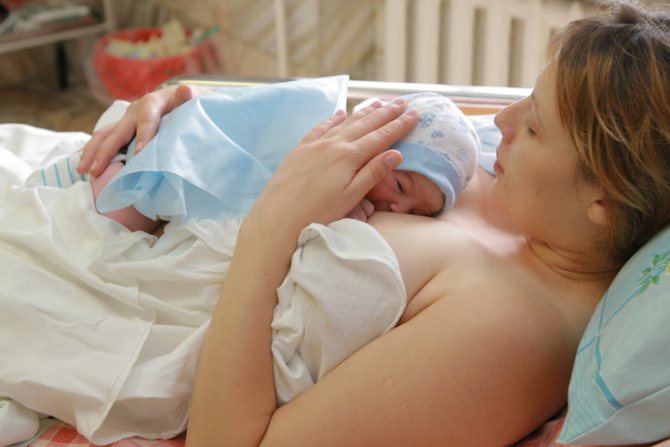
Hemorrhoids are not a disease of older and overweight men, although this stereotype is very tenacious. Statistics on the occurrence of hemorrhoidal disease in women of reproductive age refutes the theory that the male body is predisposed to hemorrhoids. If the stronger sex suffers from it more often, then the difference in incidence is not very large. In addition, men do not become pregnant or give birth to children, which eliminates one of the main risks of developing hemorrhoids.
It's easy to understand. Hemorrhoids are varicose veins of the rectum. The patient feels discomfort in the anus, he bleeds from the anus, and the progressive disease leads to the prolapse of hemorrhoids from the anus. Such a delicate problem can arise in apparently healthy people, young, active and able-bodied. For example, in expectant mothers.
The main reason for the development of hemorrhoids (or exacerbation of an existing disease) during pregnancy is the rapidly growing uterus. With its increased weight, it puts pressure on the inferior vena cava, which provokes the development of dangerous congestion in the pelvis.
But don't discount the following points:
- Hemorrhoids are clearly a genetic disease (some are predisposed to it, while others are lucky);
- The first pregnancy may be healthy, and you won’t even feel a hint of hemorrhoids, but the second and subsequent pregnancies reduce vascular tone and also provoke sagging abdominal muscles;
- Problems with the functioning of the gastrointestinal tract even without pregnancy can provoke hemorrhoids;
- A sedentary lifestyle is one of the most favorable factors for the development and progression of hemorrhoidal disease.
If the disease began during pregnancy, but proceeds with rather sluggish symptoms, then postpartum hemorrhoids may no longer develop so latently.
More precisely, all those minor signs of the disease that you may have ignored during pregnancy will worsen and bring hemorrhoids to the second stage of the disease. And hemorrhoids during breastfeeding (breastfeeding), as you might guess, are more difficult to treat.
How to treat hemorrhoids after childbirth during lactation?
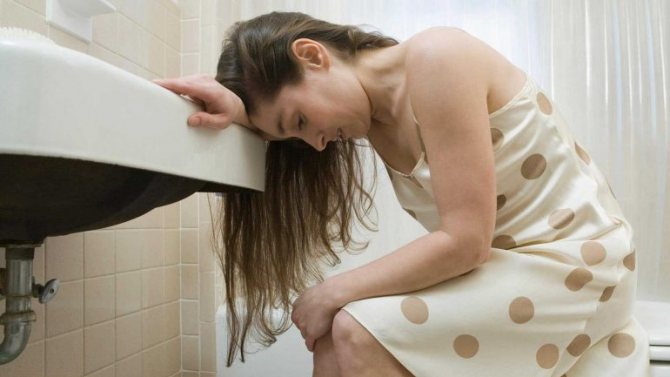
Treatment of hemorrhoids after childbirth should be selected with extreme caution so as not to harm the baby, since most drugs pass into breast milk and can negatively affect the health of the newborn.
Only a specialist, a proctologist, knows how to treat hemorrhoids after childbirth. Self-medication during this period is strictly prohibited.
Hemorrhoids can be cured after childbirth only with the help of complex treatment, which consists of the following:
- drug therapy;
- maintaining hygiene of the anorectal area;
- diet;
- increased physical activity;
- fight against constipation.
If conservative therapy is ineffective, the doctor considers surgical treatment. In the initial stages of hemorrhoids, preference is given to minimally invasive surgical techniques, and in advanced forms of the disease, radical surgery is preferred.
Also, the treatment of postpartum hemorrhoids can be supplemented with traditional medicine.
Surgical treatment
If hemorrhoids start and progress to an advanced stage, surgical treatment may be required. Several techniques are currently being used. They will not interfere with lactation. Hospitalization is required only in the most difficult cases.
Main surgical methods:
- Infrared coagulation method. The affected area is cauterized using infrared radiation. Problematic tissues that are in the affected area die. The session lasts a few seconds, during which the surgeon is able to remove 3 nodes.
- Sclerotherapy. A drug is injected into the affected vein to harden it. This is how the vein grows together.
- Cryodestruction. Liquid nitrogen is used, which is applied pointwise, cauterizing problem areas. Both the blood vessel and the mucous membrane in the affected area are affected. This method is effective at any stage of the disease.
- Ligation. The hemorrhoid is compressed with a special latex ring. The blood supply to the node stops, it dies after a couple of weeks. Pain will not bother you, but discomfort may occur.
Any of the listed methods is progressive and does not require hospitalization. This intervention will take a matter of minutes. They are low-traumatic and effective. The affected nodes disappear within a few days.
Do not be afraid of surgical intervention if the doctor sees the need for it. At the present stage of development of proctology, they do not cause pain, almost do not injure, and do not interfere with breastfeeding. Which doctor should I contact?
When the first symptoms appear, you should consult a therapist or immediately a proctologist. The doctor will listen to complaints, examine the anus and prescribe adequate therapy.
It is important that the doctor accurately determines the stage of the disease. Depending on it, treatment will be prescribed.
How long does it take for hemorrhoids to go away after childbirth?
Most often, hemorrhoids after childbirth go away within a few weeks. At the same time, it is important that the woman takes care of proper nutrition, drinks plenty of fluids, and provides feasible physical activity.
If you maintain the right lifestyle, after a few weeks the nodes will decrease, leaving only bags of skin. Can hemorrhoids go away on their own after childbirth?
The peculiarity of hemorrhoids after childbirth is that during pregnancy a woman’s body experiences enormous hormonal changes. This imbalance also provokes the appearance of hemorrhoids. After childbirth, hormones return to normal, so hemorrhoids can go away on their own. We are talking about the initial stage of the disease. Advanced forms require proper treatment. Don't underestimate your body. After giving birth he will recover quickly. The main thing is not to disturb him, to create optimal conditions.
Conservative treatment of hemorrhoids during lactation
Conservative therapy for postpartum hemorrhoids consists of taking systemic venotonic drugs, using laxatives and using local medications (suppositories, ointment, cream, gel).
Tablets for the treatment of hemorrhoids during lactation
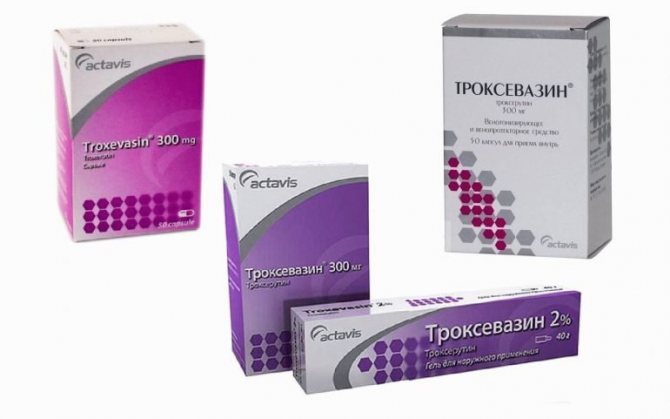
Drugs with venotonic and angioprotective effects can directly influence the cause of hemorrhoids - venous insufficiency. Therefore, the use of these funds is an integral part of treatment.
The following venotonic drugs are safe for children:
- Detralex;
- Troxevasin;
- Phlebodia 600;
- Venarus.
But, despite the safety of the listed medications, they can only be prescribed by the attending doctor. After all, only a specialist can determine the advisability of using these drugs, select the required dose and duration of treatment.
Rectal suppositories for the treatment of hemorrhoids during lactation
Rectal suppositories are mainly prescribed for the treatment of postpartum hemorrhoids, when hemorrhoidal cones are located inside the rectal canal, as well as in the development of complications of the disease such as anal tears, proctitis, paraproctitis, thrombosis, etc.
Most often during lactation the following drugs are prescribed:
- candles with sea buckthorn oil. This drug consists of natural components that strengthen the walls of the veins, relieve inflammation in the anus, reduce pain, itching and burning, and also soften the tissue of the rectal canal, preventing the formation of tears;
- homeopathic suppositories with propolis and calendula. This drug has virtually no contraindications, and its effectiveness in the treatment of hemorrhoids is not inferior to synthetic analogues;
- Neo-Anuzol suppositories. This drug contains compounds of bismuth, zinc and tannin, which form a protective film on the anal mucosa, protecting it from the penetration of bacteria and damage. Also, these suppositories relieve inflammation, pain and itching in the rectum;
- Procto-Glivenol suppositories. This drug contains the local anesthetic lidocaine and the venotonic tribenozide, which instantly relieves pain and normalizes blood circulation in the vessels of the anorectal area;
- Relief and Relief Advance candles. Preparations in this series contain mineral oils, as well as ephedrine (Relief) and benzocaine (Relief Advance). The use of these sections helps eliminate the unpleasant symptoms of hemorrhoids, heal damage to the rectum and normalize blood circulation in the cavernous vessels;
- Natalsid candles. This drug is made from brown algae and has a pronounced hemostatic effect.
Ointments for the treatment of hemorrhoids during breastfeeding
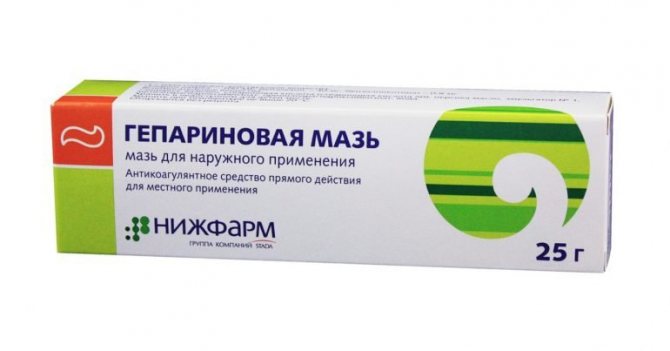
Ointment is a universal remedy for hemorrhoids, which is effectively used for all types of diseases, since most drugs come complete with a rectal nozzle for insertion into the anus.
Of course, ointment for hemorrhoids is not a panacea, but it can quickly relieve the unpleasant symptoms of the disease, prevent complications, stop inflammation and speed up the restoration of damaged tissue in the anorectal area.
The following ointments can be prescribed to nursing mothers:
- Heparin ointment. This drug contains a direct anticoagulant, heparin, and an anesthetic, anesthesin. This medicine is used mainly for anorectal thrombosis or for its prevention;
- Vishnevsky's liniment. Using this ointment, you can reduce inflammation in the anus, prevent tissue infection and speed up the healing of anal fissures;
- Troxevasin gel. This remedy is a classic venotonic and angioprotector, which normalizes vascular tone and strengthens their walls, preventing bleeding and stopping the progression of the disease;
- Ointment Posterizan. The drug is made from inactivated Escherichia coli, which enhances local immunity. Thanks to this, inflammation in the tissues of the anus decreases and suppuration of hemorrhoids is prevented.
Surgical treatment of hemorrhoids in a nursing mother
If conservative treatment is ineffective, surgical methods for treating hemorrhoids are used. For stage 1-3 hemorrhoids, minimally invasive techniques are used.
Minimally invasive techniques
Minimally invasive methods for a nursing mother for hemorrhoids have a number of advantages, including painlessness, low trauma, high efficiency and a short recovery period.
Methods of minimally invasive surgical treatment during breastfeeding may include the following:
- ligation with latex rings. The essence of the operation is that a latex ring is placed on the hemorrhoid, which stops blood circulation in it. After 1-2 weeks, the node dies and comes out;
- destruction of hemorrhoids with liquid nitrogen;
- injection of a sclerosant into the varicose hemorrhoidal vein, which glues its walls;
- coagulation of hemorrhoids with laser or infrared rays. Under the influence of these physical forces, proteins in the vessels coagulate, as a result of which the nodes decrease in size;
- ligation of vessels supplying blood to hemorrhoids.
Radical operations
There are two types of radical operations for hemorrhoids - hemorrhoidectomy and hemorrhoidopexy. Both operations are quite traumatic and require general anesthesia and a long recovery period. Taking this into account, radical operations in nursing mothers are performed only in the last stages of hemorrhoids.
Causes
Hemorrhoids that appeared after childbirth could arise due to strong pressure in the pelvis when a woman was carrying a child. For mothers who breastfeed, hemorrhoids can be caused by several factors:
- heavy load on the rectum during childbirth;
- constant constipation;
- sedentary lifestyle.
During childbirth, the outflow of blood from the pelvic organs may be insufficient, putting pressure on the rectum. This affects the formation or enlargement of hemorrhoids.
Postpartum hemorrhoids can be cured by eliminating one of its causes - constipation. This can be done by adjusting your diet. For women during lactation, food is an important indicator on which the quality of milk depends.
It will be beneficial for young mothers to gradually add foods rich in fiber to their food. This is oatmeal or bran, apples and bananas. Dried fruits include prunes and dried apricots. It is important to add vegetable oil to your diet. In addition, do not forget about the importance of water: you need to drink at least one and a half liters of it per day.
Comprehensive treatment of hemorrhoids in nursing mothers involves increased physical activity. You can walk, do simple exercises. This will improve blood flow and get rid of the disease faster.
How should nursing mothers eat with hemorrhoids?
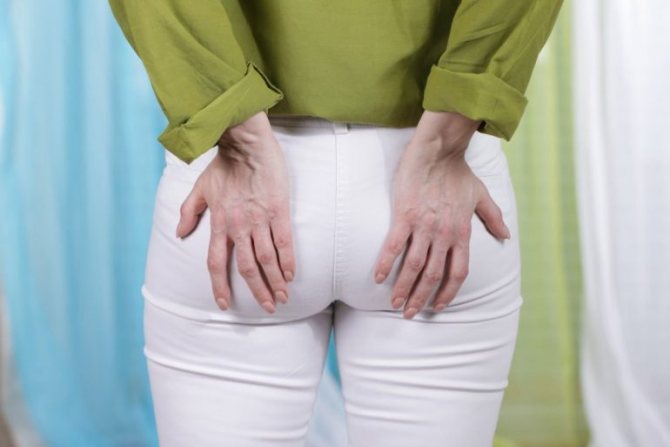
Diet is an integral part of the treatment of postpartum hemorrhoids. Women are advised to follow the following nutritional principles:
- eat 5-6 times a day in small portions;
- drink enough liquid. You are allowed to drink still water, compotes, juices, fruit drinks and teas. A decoction of dried fruits is especially useful, since it allows you to avoid constipation without the use of medications;
- The menu must include foods rich in plant fiber (vegetables, fruits, dried cereals), as they contribute to normal intestinal function;
- foods that irritate the intestines, increase gas formation and increase blood flow to the vessels of the anus (pickles, smoked meats, spices, hot seasonings, white cabbage, legumes, radishes, grapes, etc.) are excluded from the diet;
- You should not eat chocolate, as it not only can cause allergies in the baby, but also hardens the stool;
- The consumption of alcoholic beverages is strictly prohibited, as they increase the pressure in the vessels of the anus and harm the child.
How to treat hemorrhoids during lactation with traditional medicine?
Having studied more than one women's forum, we noticed many recommendations and positive reviews about traditional medicine during breastfeeding. Women consider this treatment safer.
But you need to understand that folk remedies for hemorrhoids are not effective enough to completely cure the disease, and moreover, they can cause allergies in the baby. Therefore, it is better to use traditional medicine as a complement to the main antihemorrhoidal therapy and only after consultation with a proctologist.
The most effective remedies for hemorrhoids for nursing mothers are the following folk remedies and methods:
- baths with decoctions of medicinal plants (chamomile, oak bark, yarrow, onion peel);
- microenemas with a decoction of medicinal herbs, vegetable oil, beetroot or potato juice;
- compresses and lotions for external hemorrhoids and fissures. The procedure can be done with honey, decoction of medicinal plants, grated potatoes or sea buckthorn oil;
- homemade ointments. There are many recipes for ointments for hemorrhoids. But the most effective are those that contain honey, propolis, butter, mumiyo, birch tar and other natural ingredients;
- homemade rectal suppositories. Candles can be made from ice, raw potatoes, honey, propolis, lard, aloe, etc.
Prevention of hemorrhoids in a nursing mother
To avoid postpartum hemorrhoids, prevention should begin during pregnancy. To do this, you must follow the following rules:
- to live an active lifestyle;
- Healthy food;
- drink enough fluid;
- eliminate constipation in a timely manner;
- replace the use of toilet paper by washing with water at room temperature without soap;
- wear underwear made from natural fabrics;
- perform exercises to strengthen the muscles of the anus.
As you can see, the birth of a child is often accompanied by the appearance of hemorrhoids, and the treatment of this disease has some difficulties associated with breastfeeding. Therefore, it is important to take care in advance to prevent this disease.
If you still were unable to avoid postpartum hemorrhoids, then under no circumstances self-medicate, but immediately contact a specialist - a proctologist. Only a doctor can choose the safest treatment method for you and your baby.
Sphincter exercises
Lack of movement is one of the main causes of blood stagnation in the pelvic area. Therefore, it is very important both during pregnancy and after it to regularly do gymnastics (at an accessible level), walk more often and sit less. It is a sedentary lifestyle or work that is considered a risk factor for the development of hemorrhoids.
Therefore, before treating hemorrhoids, you need to include simple exercises in your daily routine:
- tension and relaxation of the sphincter. The exercise is repeated as often as possible, whenever possible;
- lower bridge. Starting position – lying on your back, legs bent at the knees. As you exhale, lift your pelvis up, squeeze your buttocks, sphincter, tighten your abs, and while inhaling, return to the starting position;
- "scissors";
- "bike";
- "birch tree" Exercise helps remove blood from the pelvis. Can only be performed if there are no contraindications.
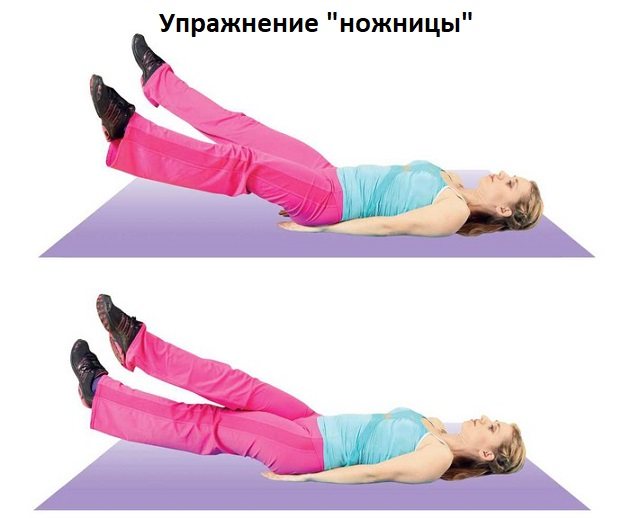
Just 10 minutes a day will help significantly alleviate the symptoms of hemorrhoids or even eliminate them in the early stages.
